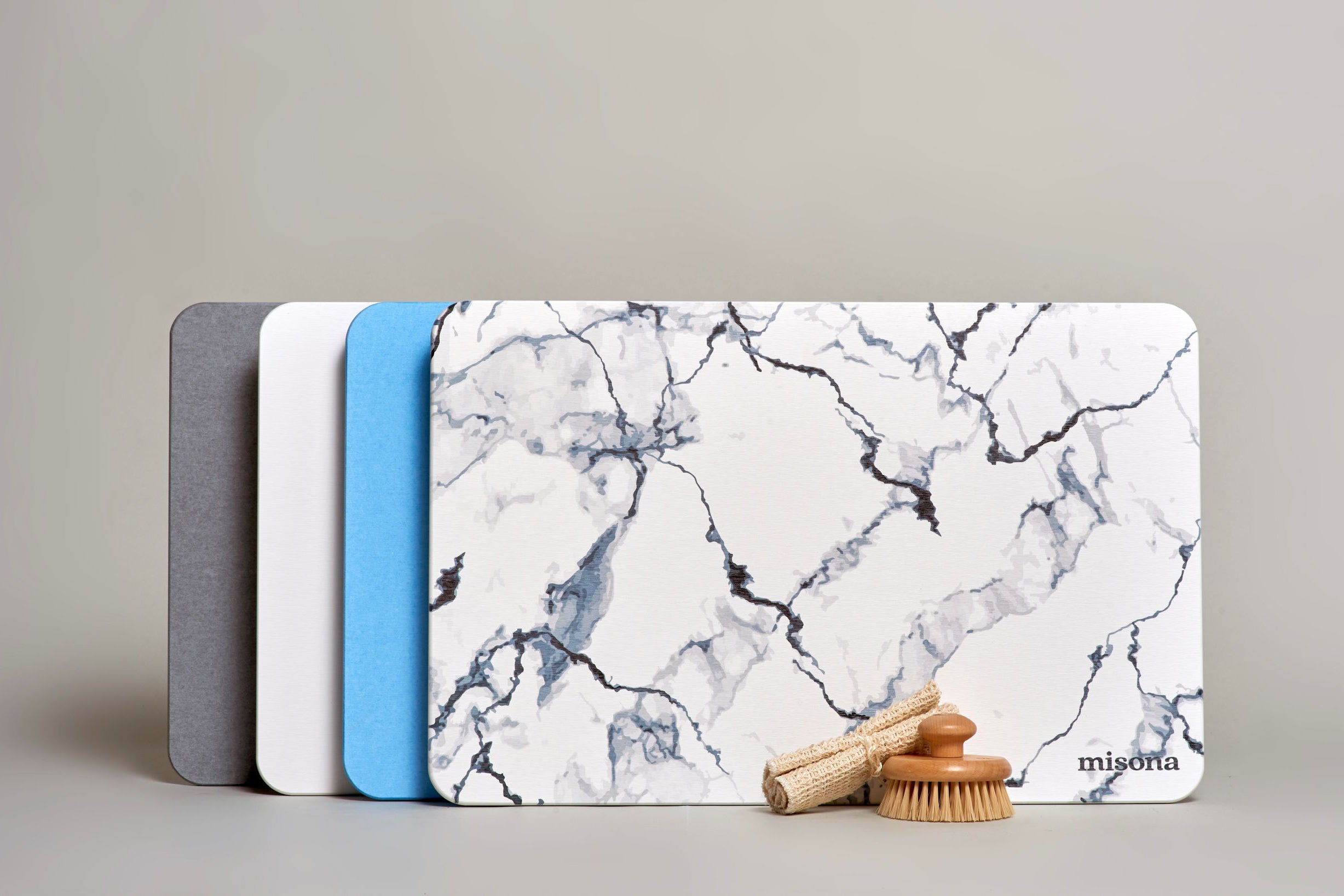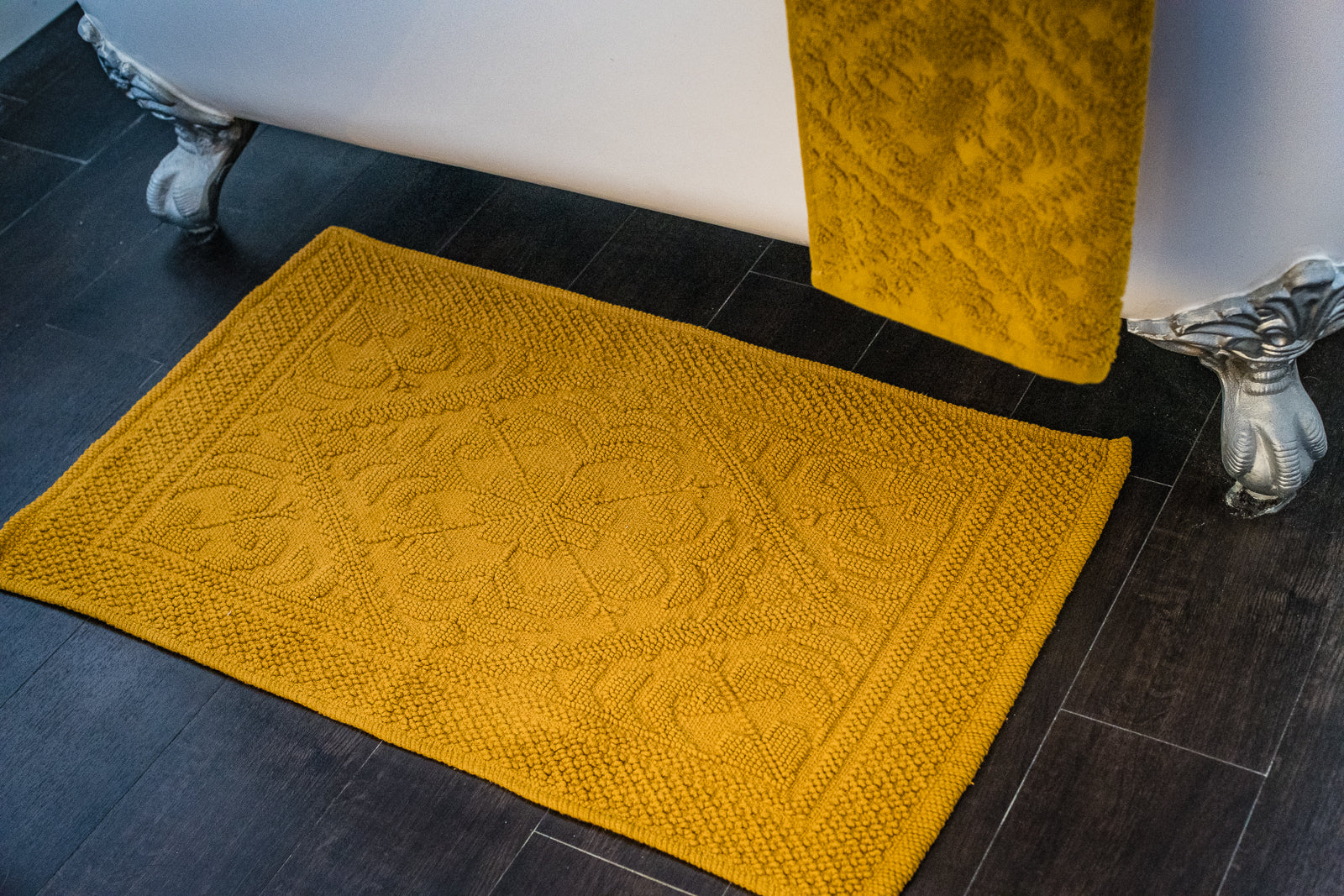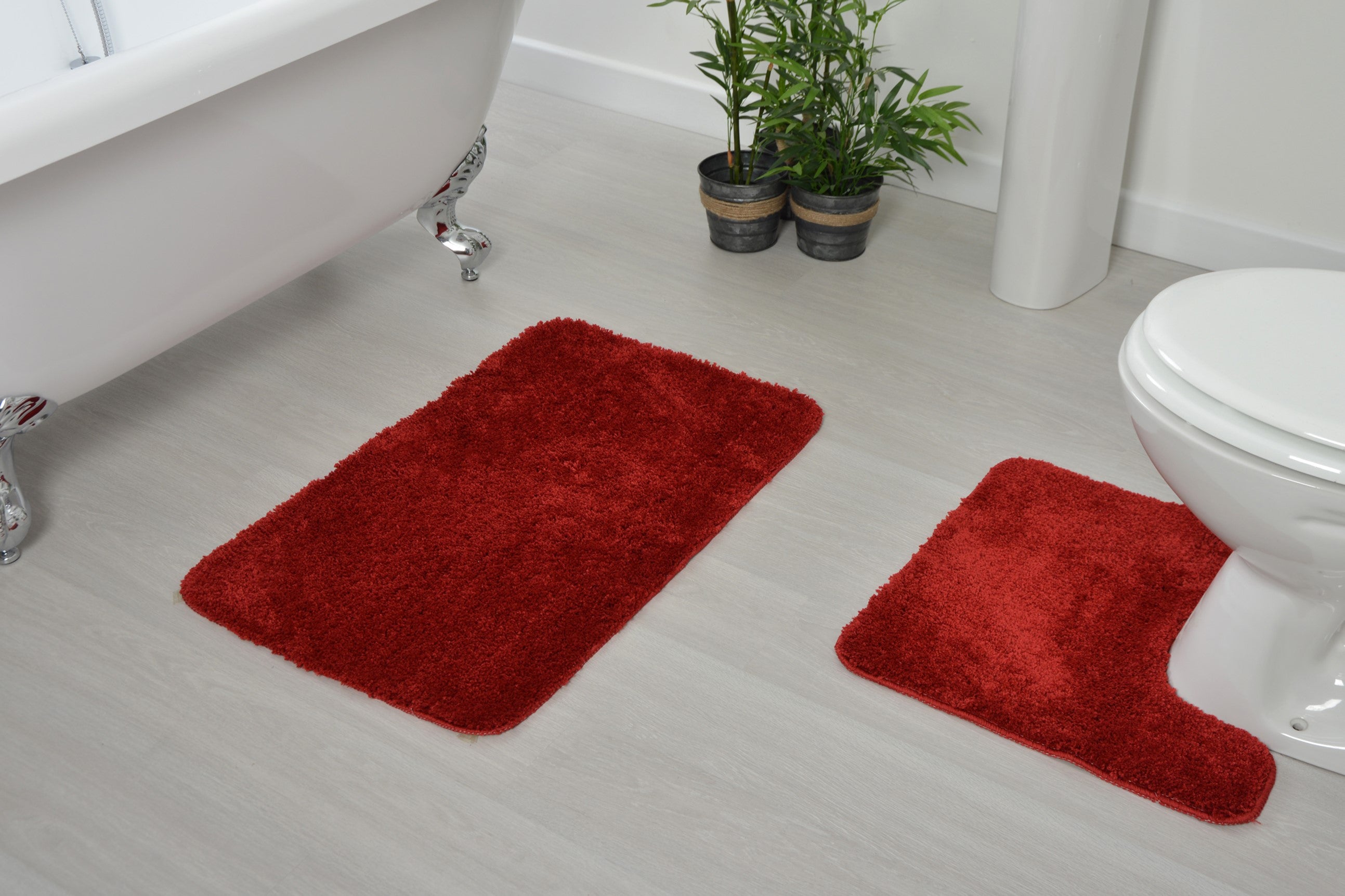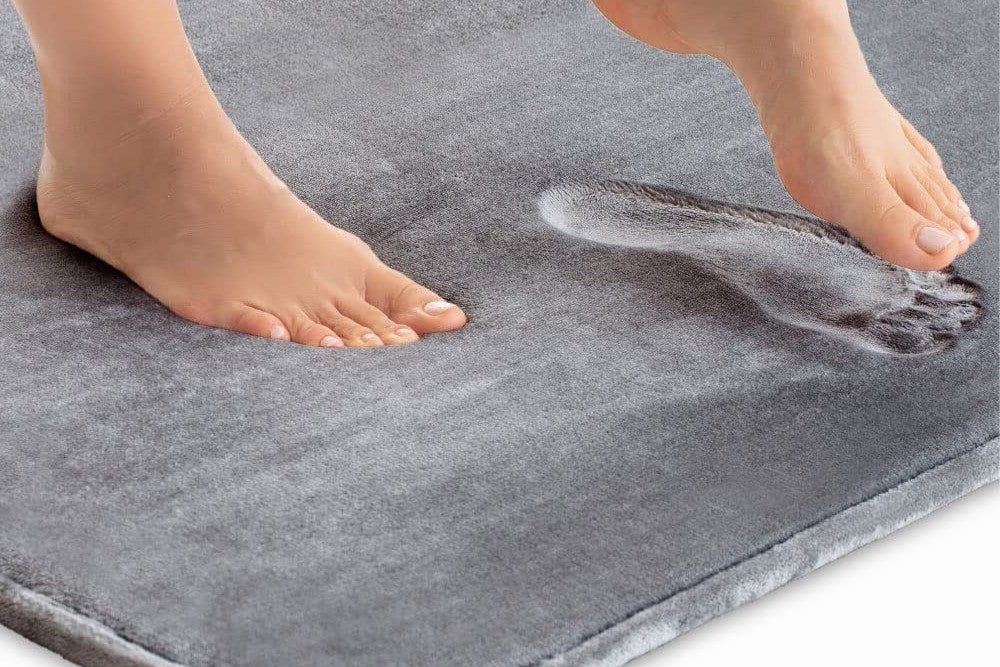Some would say we have it easy nowadays. We can buy anything – and do so without ever getting off the couch.
While that may be true, this unprecedented level of convenience the modern era has to offer is still a double-edged sword. How? Picking the right product, whatever it may be, is a nightmare.
Yes, it’s a far cry from the problems humanity has been facing for millennia, but it doesn’t make it any less real.
Nowadays, to make a relatively informed purchasing decision, you first have to get online. And then all the scrolling, researching, site-jumping, and YouTube browsing begins…

We look for reviews, videos and opinions to shake off this horrible feeling that we’re just wasting money. And that we’re going to have to go through this whole process all over again once it inevitably stops working or breaks. Prematurely, in the worst-case scenario.
There’s really not much difference between the process of buying a smartphone, a pair of running shoes, a foot towel or a bath mat. Let’s focus on that last one.
Finding the Purpose
Of course, bathroom mats are there for safety – to prevent any slips and accidents, but also for convenience and keeping the mess at bay as wet floors are not only dangerous for us, they’re actually bad for the floor as well. And that goes for pretty much any flooring type you can think of.
This may sound obvious and, honestly speaking, quite easy. But it’s not necessarily the case. Because while the purpose of the product itself remains the same, the reasons behind the purchasing decision can be very different.
Maybe it’s just for the looks? Maybe this mat just matches that set of organic towels you recently got for your bathroom. Or maybe, it’s, in fact, very functional and convenient? Whatever it is, you need to find your why – or your priority, to put it simply.
Finding the Balance
This talking point is very closely related to the previous one we’ve already discussed. Chances are – you’re going to have to compromise.
The style might be up your alley but it’s made of low-quality synthetics. Or it’s very functional and 100% natural but you don’t like the design or it’s not that durable. Or maybe it just doesn't match your expensive bathroom accessories...?
Even if it’s perfect in both departments, you look at the price tag and you immediately start thinking ‘Hm, maybe I don’t need it…?’. Round and round it goes.
That’s why you have to go in with a specific plan in mind, knowing full well what the most important thing is for you, and where you’re more flexible and willing to compromise.
What's out there?
Here’s something we haven’t mentioned yet – the variety of products. And it’s really extensive; that’s why we need so much research. To make things a little easier for everyone, we decided to compile a comprehensive list of different types of mats.
Obviously, absorbency is a big point of consideration in this case, and that depends mainly on the use of specific materials which may or may not offer strong water-soaking properties.
There’s also a question of durability, convenience and comfort, safety, functionality, hygiene and, of course, affordability, style and finally, environmental impact.
Stone Bath Mats
This mat is made from 100% naturally occurring porous soft rock known as diatomite. It has a wide range of applications thanks to its unique properties and versatility.
Pros:- Functionality & Absorbency: This is the most functional mat you can pick for your bathroom. Thanks to diatomite, it soaks up water within 60 seconds, so you won’t have to worry about wet floors. Finding a more absorbent material would be a tall order, to say the least.
- Convenience & Comfort: It’s not cold despite the fact it’s made of stone, so in terms of convenience, there’s nothing to complain about. But there’s more – it requires minimal maintenance. No washing, which means no detergents and laundry. Our own models come with a piece of sandpaper for your convenience, should you need a more comprehensive clean-up every now and then.
- Safety & Hygiene: Diatomite is naturally odour-free, with special anti-mould and anti-bacterial properties. Non slip backing is also supplied with many of these bath mats, keeping them securely in place with every use.

- Style: Many choices in this department, with our very own marble effect mat, which is a great addition to any bathroom, thanks to its versatile and elegant design. A stone bath mat can add a minimalist feel to any bathroom. They are often also a little smaller than standard bath mats, making them ideal for use as a bath mat but also as a shower mat.
- Environmental Impact: It’s a 100% natural bath mat and with so many uses, it has a long lifespan and it’s actually circular. It also doesn't need to be machine washed, saving not just time, but water and energy too. The very definition of a sustainable product and an eco-friendly bath mat.
Cons:
- Durability: Just to be clear – it is durable, but it’s also made from a soft rock, which makes it very light. It may not be ideal for any rough-housing though. Although by no means fragile, these bath mats can break if not used safely. The good news is that it still preserves its unique properties and can even be used in a garden to protect your plants.
- Affordability: Even though the asking price isn’t high when we think about what it brings to the table, some may find it a bit steep for a bath mat – especially compared to the cheapest options, made from synthetics.
Bamboo Bath Mats
This is another sustainable type of bath mat. The material is also great for other bathroom products, like bamboo towels.
Pros:- Functionality: It offers some resistance to mildew, it’s odour-free and anti-bacterial.
- Durability: This is the biggest selling point of bamboo as it offers sturdy construction and cannot be broken or destroyed easily, especially hardwood mats. Probably the most durable option out there.
- Convenience & Comfort: Natural wood feels great and doesn’t have to be washed too often, so again, you can save money on laundry and cleaning products. It also requires minimum maintenance - just a little more than its diatomite counterpart as it should be dried immediately after the bath.
- Safety: Wooden surfaces can be a bit slippery when wet. Most models come with anti-slip underlay to stick to the floor better.
- Style: Bamboo mats, especially those sturdier hardwood models, make everyone think of SPA retreats, while natural elements have this unique ability to elevate any space and make it feel more elegant and pleasant.
- Environmental Impact: Bamboo is one of the most sustainable materials in the world, making these bath mats a perfect choice for an eco-conscious buyer and for your bathroom floor.
- Affordability: It may be a bit more affordable, but still far more expensive than the cheapest options.
- Absorbency: As a hardwood mat, it offers none, so not the best choice if you want to keep the water away from your floor as it’s going to either seep through the mat or run down onto the floor. Also, you’ll need to dry it after the shower.
- Hygiene: While they do offer some mould resistance, it’s not perfect, so weekly or biweekly cleaning with mild cleansers is a good idea.
Cork Bath Mat
Cork is an interesting and lesser-known choice for bathroom mats.
Pros:- Functionality: It’s nice, spongy, and holds warmth quite well. Light and very functional.
- Durability: While cork can definitely be damaged, it’s still fairly strong and durable.
- Convenience & Comfort: We’d place it above bamboo or wood mats, and below diatomite models – it can be cleaned fairly quickly and easily. No need for drying or machine washing either, wiping down and airing them will suffice.
- Safety: Cork has a very grippy texture on its own, providing good protection against slips and falls.
- Hygiene: It’s both anti-bacterial and anti-fungal, which is a perfect combination for bathroom products.
- Style: While it may not be everyone’s cup of tea, there’s no denying natural materials have this undeniable charm about them, giving off a bit more rustic and warmer vibe. Cork is no different.
- Environmental Impact: Cork comes from tree bark, which means it can be sourced without cutting down any trees. It’s a great eco-friendly choice.
- Affordability: Again, it’s not the most expensive product (although it can be), but still a bit pricey compared to the cheapest models. There’s one more issue – there are many different types of cork. Also, some models are just marketed as cork mats while in reality, they’re made from recycled wood fibres.
- Absorbency: There’s some debate here, but the truth is that cork is hydrophobic – basically impermeable. While that adds to the durability and comfort, it also means it’s not really absorbent, so all the water will most likely end up on the floor. Of course, you can easily wipe it off, but for some – this is a deal-breaker.
Cotton Bath Mats
A very popular (if not the most) and traditional choice for a bathroom rug.
Pros:- Functionality: Cotton definitely feels great against the skin, especially more luxurious types, and it’s highly functional.
- Durability: All depends on the quality, but generally speaking, it’s very durable, perhaps second only to bamboo.
- Style: As a staple fabric for most bathroom products, there are plenty of stylish options to choose from including sculpted jacquard designs.

- Absorbency: A cotton bath mat offers very good absorbency; of course, subpar to that of diatomite. Organic cotton is actually even more absorbent than most conventional cotton types.
- Safety: The surface itself is not slippery and mats typically come with non-slip underlay.
- Convenience & Comfort: It’s definitely not hassle-free. It requires quite regular machine washing and drying. There’s also a matter of discolouration and shrinkage.
- Affordability: Since there are different types of cotton, it’s possible to find very affordable products, but there’s usually a noticeable dip in quality. Luxurious types, like Egyptian cotton, tend to be on a more expensive side.
- Hygiene: As mentioned, it requires regular washing and it doesn’t have any anti-bacterial properties on its own, but there are some alternatives in that regard – like organic cotton and bamboo blends.
- Environmental Impact: Cotton is known as the world’s dirtiest crop, so it’s definitely a bad choice for the planet – mainly because of the heavy use of pesticides. On the bright side – it is recyclable. An answer to that is organic cotton, which is grown with sustainable and responsible practices.
Nylon Bath Mats
Ever since its discovery in 1938, nylon has been a staple in various types of bathroom products.
Pros:- Functionality: It’s stain-resistant and dries quite quickly.
- Durability: Synthetic materials tend to be very durable and nylon is not an exception.
- Safety: The surface itself is not slippery and mats typically come with anti-slip underlay.
- Style: Nylon has been around for quite some time, so there’s a lot to choose from in terms of styles, patterns and designs. Obviously, it won’t look as good as natural fabrics or materials, and the pile height may be quite low, but it’s easy to find something you like.
- Affordability: It’s actually one of the most affordable mats out there.
- Convenience & Comfort: While they don’t feel great against the skin and do need to be washed, nylon mats are far less demanding than their cotton counterparts. Plus, they’re stain-resistant, so they’ll look pretty good for much longer.
- Absorbency: It’s good, but not as good in the case of cotton mats.
- Environmental Impact: As a synthetic mat, it’s downright bad for the planet, being three times more energy-intensive than cotton. The manufacturing process creates nitrous oxide and the product itself is non-recyclable. If you're looking for something eco-friendly, this is not the right bath mat for you.
- Hygiene: It’s anti-bacterial only if it undergoes a special treatment process which is not always the case.
Microfibre Bath Mats
Another synthetic material; very popular choice, thanks to its super absorbent and fast drying properties, as well as an affordable price tag.
Pros:- Functionality: Highly absorbent, light, soft and affordable.
- Durability: They’re quite durable and able to withstand a lot. This mat going to serve you for a long time and is perfect for the whole family to use.
- Absorbency: Microfibre is made from a yarn finer than natural hair or silk, which makes it ultra-absorbent – even more than natural fibers such as cotton.
- Safety: It’s fine, but definitely requires some kind of rubber or latex backing – as most fabrics do.
- Style: As microfibre bath mats are also extremely popular, so there are plenty of different styles you will find on the market.
- Affordability: Overall, it’s fairly affordable – especially the cheapest options.
- Hygiene: It’s mildew and mould-resistant and because it is a quick drying bath mat, bacteria growth will be unlikely.

- Environmental Impact: They’re not biodegradable or recyclable. On top of that, they’re way too fine to be filtered out by waste treatment plants, so most of them end up in the oceans. The fibres are typically made from polyester, which is a synthetic material – not particularly eco-friendly on its own.
- Convenience & Comfort: They don’t have that luxurious feel of Egyptian Cotton, but still offer some comfort, keeping your feet warm. Nevertheless, they still require machine washing and drying – although not as much as cotton does.
Rubber Bath Mats
A go-to option for hospitals and nursing homes for safety reasons.
Pros:- Functionality: Highly functional choice - safe and affordable.
- Durability: They’re typically well-made and durable, which means they can take a lot of punishment.
- Safety: This is where they shine with their grippy texture – they offer the best slip resistance.
- Affordability: Very cheap, in most cases. Natural rubber models tend to be a bit more pricey, of course.
- Environmental Impact: Now that’s a tough one. Natural rubber is biodegradable, which means it’s a fairly green material, but its synthetic counterpart is definitely not – the production requires a lot of energy. It’s not biodegradable either.
- Style: Although there are definitely a lot of colour options and patterns, they look cheap and poorly made, especially compared to the rest of the mats in this review.
- Absorbency: None.
- Convenience & Comfort: They don’t feel warm or good, they’re just safe. On top of that, they’re not exactly easy to keep clean.
- Hygiene: These require regular cleaning and drying, otherwise they’ll make a great home for all sorts of bacteria and mould.
Memory Foam Bath Mats
Plush memory foam, also known as viscoelastic polyurethane foam, is an extremely common choice for bath mats.
Pros:- Functionality: They’re definitely up there – fairly easy to clean, highly absorbent, quite durable and quick-drying.
- Durability: A very durable material, thanks to its high density.
- Safety: They’re non-slip, so one of the safer options.
- Style: It’s a synthetic material and it shows, but there are plenty of interesting options out there. It does look quite elegant and modern – there’s no denying that.
- Convenience & Comfort: They feel good against the skin and require similar care as cotton does, although they won’t need to be washed quite as frequently.

- Absorbency: They’re highly absorbent.
- Hygiene: They dry really quickly, so any bacteria will have a hard time settling in. They’re also antimicrobial, making it even harder for them to set up camp.
- Affordability: The price range is quite big, but overall, these mats are one of the more expensive products on the list.
- Environmental Impact: Some types are indeed biodegradable, but generally speaking, as a synthetic material, it’s not particularly good for the environment, although less so than polyester and nylon.
It's not an Easy Call
Finding the best bath mats and shower mats for you may not be easy, and there's more to consider than you might first realise. But it’s well worth the effort.
We’ll let you decide who’s the winner here. There are just too many factors at play.
Whichever way you lean towards, make sure you think about one more thing, which is cost-per-use.
We would recommend not immediately dismissing a slightly more expensive mat just because of the price tag.
Investing in an initially more expensive but ultimately more durable and reliable mat might be a far better option for you and your budget and may offer great value in the long run.
So forget stepping out of the bath onto a cold tiled floor and choose the best bath mat for your needs. We hope our comprehensive guide will go some way to making your choice!

